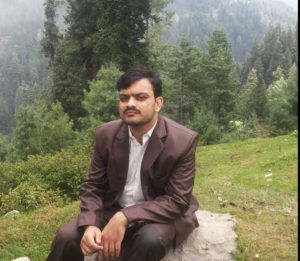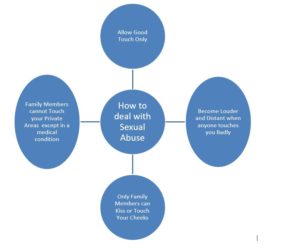Women Empowerment in India: What is next?

Nadeem Abbas Haider, Attock, Pakistan
Email Id – ndhaider2000@gmail.com
Facebook A/c – https://m.facebook.com/nadeem.abbas.39545
Instagram A/c – https://www.instagram.com/stories/almostcreative00_nadeem_abbas/2916748483976037614/
About Nadeem – I am the survivor of polio in Pakistan with an inspirational story to tell. I have remained an average student in my life. I was also the subject of bullying in school. However, my social experiences worsened with time when I married according to the wishes of my parents. My inlaws were insensitively harsh to my physical condition. I can do many activities of life with ease. Still, there is a visible limp in my walk that becomes more prominent when I run. Due to having an unstable personal life, I had to have a divorce that led me to losing the custody of my daughter. I remained suicidal for a year. During my depression, the COVID-19 crisis in India came, and I was in isolation at that time, and therefore, I decided to volunteer in India, hoping to see a limited and controversial response from the other side of the border as I live in Pakistan. Anyhow, I approached an Instagram Post that requested for volunteers in India. I started working with my Indian colleagues, and I found another daughter, Pooja Menon in India in the place of the one who I had foregone in Pakistan. This is the power of social media that it can help you build unexpected alliances. Previously, I did my Masters in Business Administration from Mohammad Ali Jinnah University from Islamabad. I have received an equivalency to Masters in Science (MS) from Higher Educational Commission of Pakistan due to my published research papers and books. I also head an organization with the title of “Dream Research Center” where we transform ordinary people.

Women Empowerment in India: What is next?
The Indian culture greatly influences from the values of Hinduism. Hindu religion has two fundamental tenets that help it to exist in a changing world with relevance. Firstly, Hinduism inspires people to include others in the affairs of social services, and secondly, Hindu theology bases on an anthropological idea of human existence where every individual could have a possibility to earn greatness in his or her life. Any person regardless of gender, age, caste and
religion could actively and energetically participate in the society of India.
Now comes the mention of a trend of women empowerment in India that moved me to pen this article. Females have much liberal and free lifestyle in India that I noticed as a Pakistani working during a COVID-19 Pandemic in India, I came to know that Indian women have a higher sense of purpose. The girls of India worked with the boys to make a difference in the lives of all those people who suffered endlessly due to the pandemic. I have to mention that I have a
close friend in India who I consider as my daughter, Pooja Menon who supervised my team during the COVID-19 pandemic. I have to admit that the leadership and administrative skills of the females of India have no match in the neighboring countries.
I had a surprise when the Indian Social Workers accepted my potential participation in the response to COVID-19, and I have to acknowledge that the inclusive culture of India could make anybody feel welcomed and honored. The Indian females have an upbringing that motivates them to take part in the affairs of the country. India could not progress without empowering its females even further. The culture of Bangladesh that found inspiration from the
Indian empowering mindset included females in the mainstream social processes of the nation. A country could not travel the path of development until the females do not exert their professional energies equally.
Indian females have an empowering state of mind because the India’s women could only radiate motivational energy that they bring from their domestic environment. Domestic empowerment of females makes them strong to face the challenges of the world. Indian females outperform their classmates educationally due to the strengthened mindset that they receive from their parents at home. The parental empowerment that Indian females get from their homes
reflect in their social, professional and educational outcomes. However, one could not take away the fact that the religion of Hinduism has trained the youth of India to see good in a perceived enemy. Indians hate the animosity, but not the enemy at a human level. Female leaders have in them to create a peaceful environment in the South Asian region where military conflict looms over our heads almost forever.